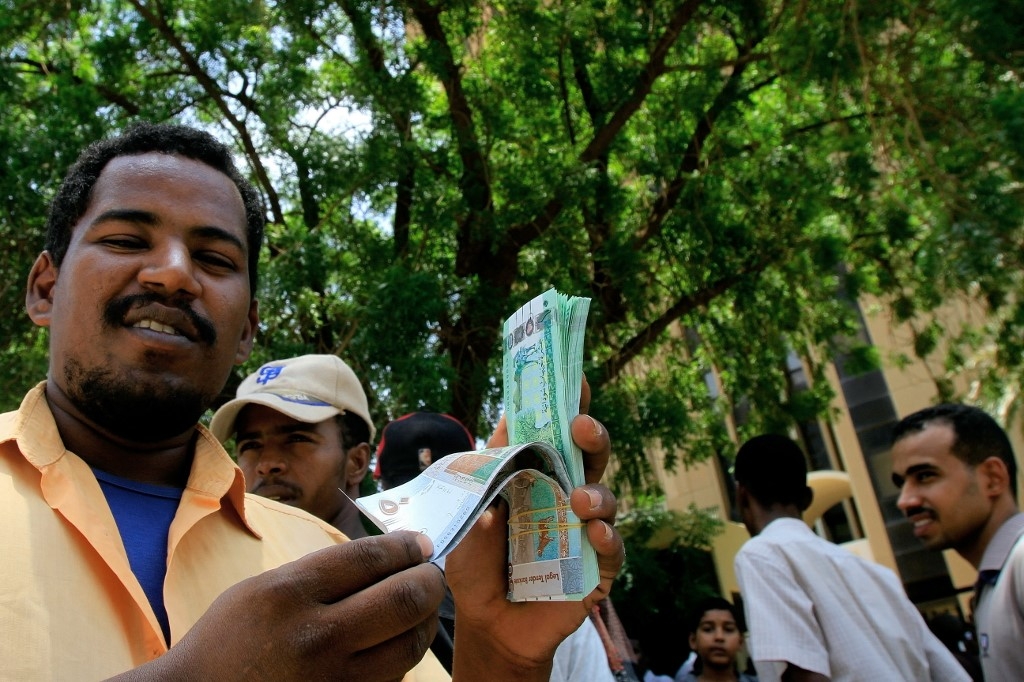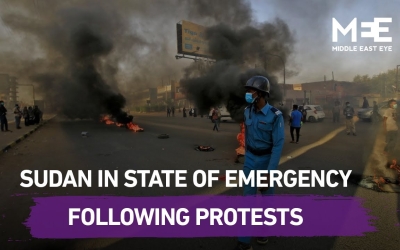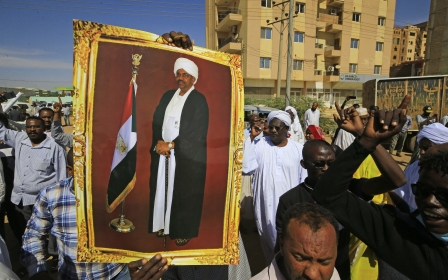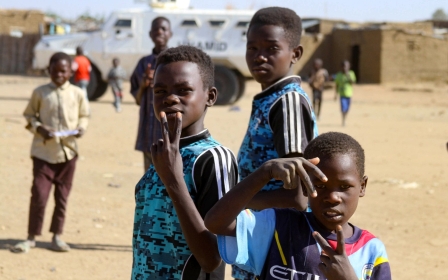Sudan risks high prices and angry backlash with radical currency change

Sudan announced radical changes to its exchange rate on Sunday that could force prices up, risking inflaming existing discontent over living costs.
The government said it would abandon its longstanding fixed exchange rate in favour of a managed float, required as part of an IMF programme, that is likely to see the country's currency substantially devalue from the current rate of 55 Sudanese pounds to the dollar.
The change is expected to see the pound move closer towards the black market price of 400 to the dollar that the government is trying to combat.
The prospect of higher prices comes, however, as citizens are already grappling with an inflation rate that topped 300 percent last month, leading to protests in several parts of the country.
New MEE newsletter: Jerusalem Dispatch
Sign up to get the latest insights and analysis on Israel-Palestine, alongside Turkey Unpacked and other MEE newsletters
Translation: A cartoon commenting on the banks, right, competing with black market currency rates
Newly appointed finance minister, Gibril Ibrahim, urged citizens to tolerate the impact of the policy change, saying in a press conference on Sunday that it "will require a high patriotic spirit" and "cooperation".
'Courageous decision'
Many Sudanese social media users questioned the currency move and the impact it will have on living standards.
Several posts also criticised the transitional government's commitment to tackling the country's economic crisis through collaborating with international financial institutions that impose strict conditions on support.
However, the UN's special representative to Sudan, Volker Perthes, praised the "courageous decision".
"This will bring foreign support and enhance investments. As importantly: it demonstrates that the transitional authorities can reach consensus, take difficult decisions and carry them through," Perthes tweeted.
Several foreign governments, including the United States, also praised the decision.
The transitional government has decided to undertake policies "aimed at reforming and unifying the exchange rate system by applying a managed flexible exchange rate system," the central bank said in a statement.
Painful reforms
Closing the gap between the official and black market exchange rates is central to a reform programme agreed with the IMF last year.
The central bank said its policy shift, which follows the recent appointment of a new cabinet tasked with tackling the economic crisis, is "imperative" to help achieve stability.
It is one of several painful IMF mandated reforms, which also include reducing costly subsidies, as authorities seek to secure debt relief and attract investment following the April 2019 removal of president Omar al-Bashir.
Sanctions and economic mismanagement under Bashir's decades-long rule were a significant cause for the anger that prompted protests against him in late 2018.
The new exchange rate policy, the central bank said, would allow for the rate to be determined by supply and demand, but it would still intervene in the market.
In January, the IMF said it was "working very intensively with Sudan to build the preconditions for debt relief".
Foreign reserves fears
The US recently removed Sudan from its state sponsors of terrorism blacklist, another move Khartoum hopes will unlock debt relief and international funding.
The central bank's policy shift comes amid concern that Sudan's level of foreign currency holdings are approaching exhaustion.
The recent shortages in bread and also fuel point to the possibility of the country "severely lacking" foreign reserves, Mohamed el-Nayer, a Sudanese economist, told AFP.
Last month, the government approved this year's budget. It hopes to bring inflation down to 95 percent by the end of this year.
Middle East Eye delivers independent and unrivalled coverage and analysis of the Middle East, North Africa and beyond. To learn more about republishing this content and the associated fees, please fill out this form. More about MEE can be found here.





